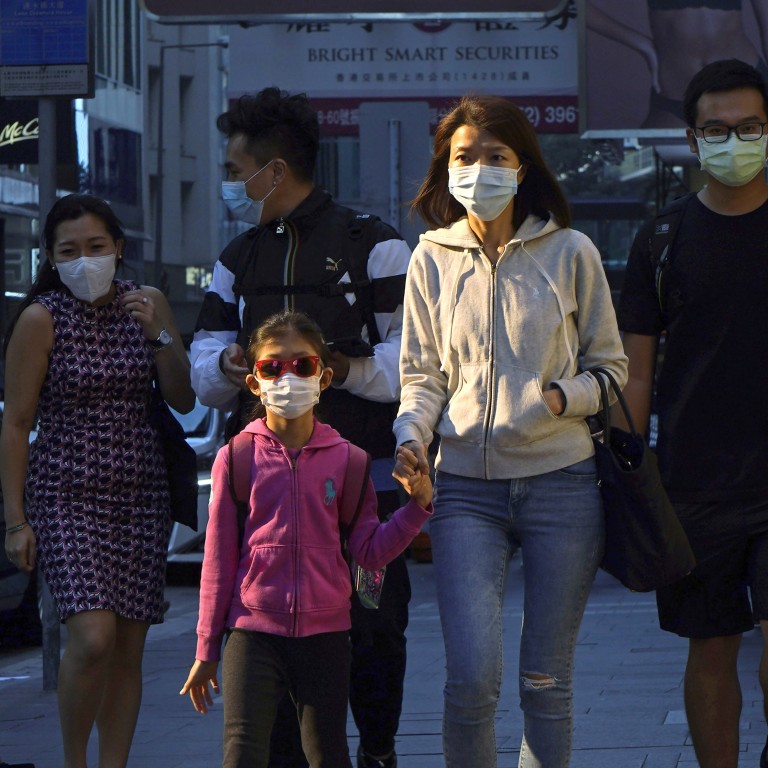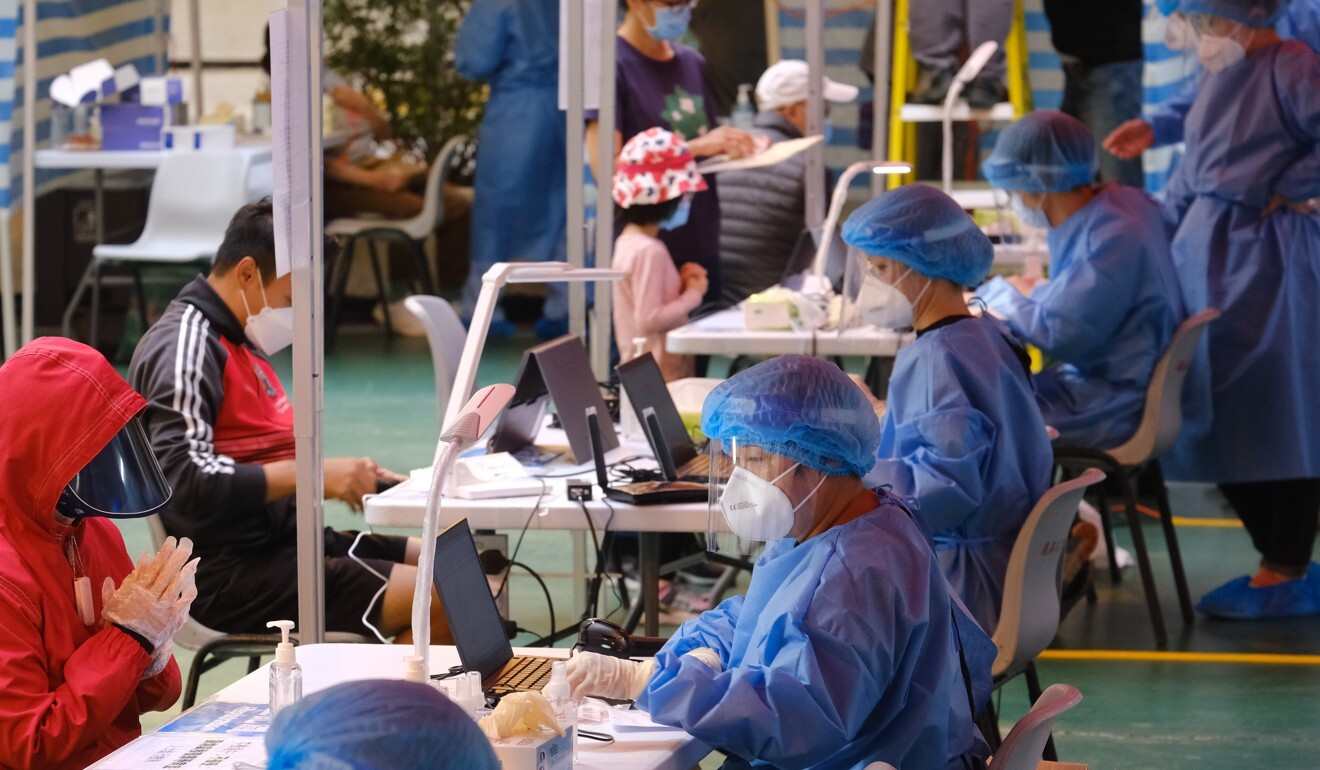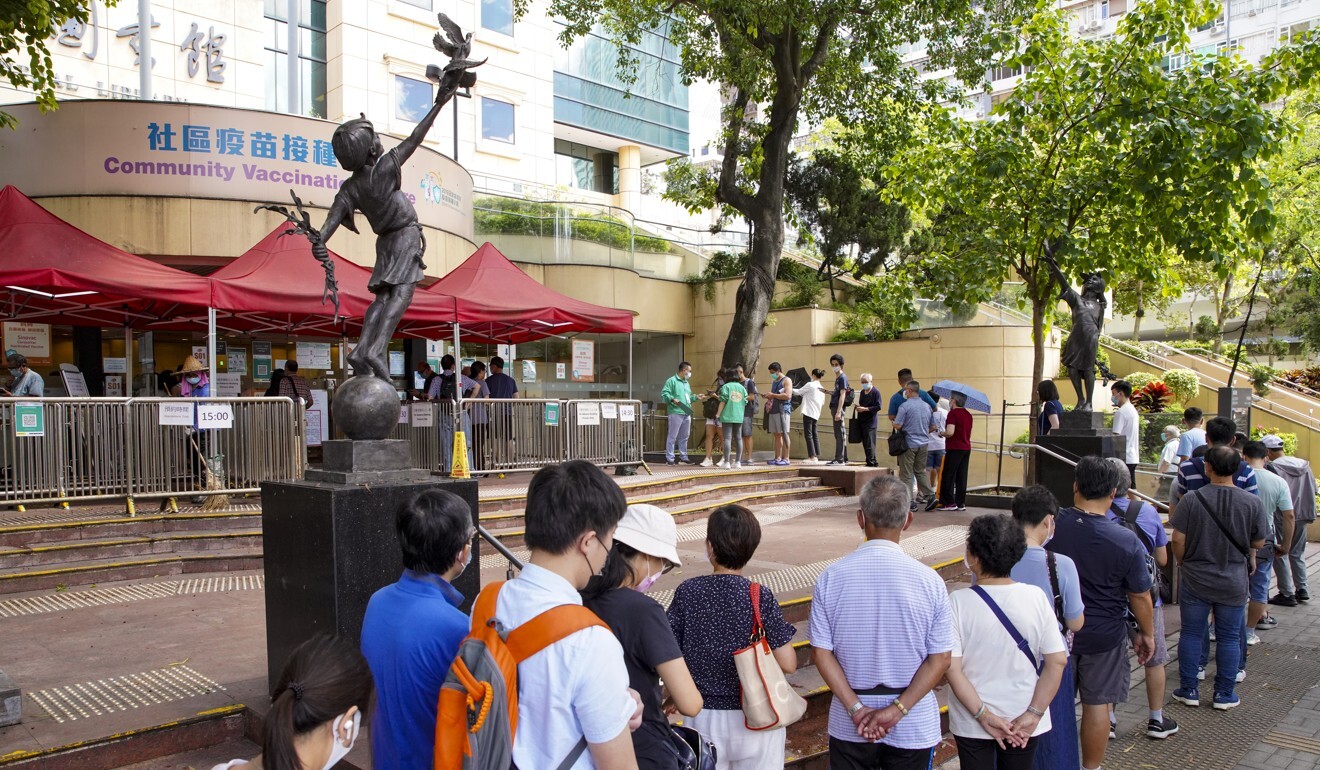
Coronavirus won’t just go away. Here’s how Hong Kong can learn to live with it
- The near-certainty of Covid-19 being with us forever means officials should focus on encouraging people to protect themselves by getting vaccinated
- Doing so will require overcoming some behavioural biases – and a reframing of the case for vaccination, writes Donald Low
Although vaccines offer very high levels of protection, the lack of sterilising immunity that prevents inoculated people from being infected also makes elimination of the coronavirus impossible.

In short, Covid-19 will become endemic and we must learn to coexist with the virus. It will continue to circulate at low levels in our community without crushing the health care system if immunity levels are sufficiently high.
This scenario is not as terrible as it sounds – it is how we live with the viruses that cause the seasonal flu every year. But it does mean that achieving a sufficient degree of herd immunity will be a gradual process that involves both vaccinations and prior infections.
Living with Covid-19
During this transition, it is incumbent on experts to prepare the population for the near-certainty of Covid-19 being with us forever by encouraging people to protect themselves by getting vaccinated – not through ever more stringent restrictions on social activities and travel.
The virus will continue to evolve and new variants may emerge, but that is not an argument against vaccination. Instead, it underscores the need for people to get booster shots in future.
Many people already have a zero-risk bias: preferring risk elimination to risk reduction or mitigation. This being the case, public health experts should emphasise what people can do to reduce the risks to themselves – such as getting vaccinated – rather than cause more anxiety by predicting the next wave of infections or casting doubt on the effectiveness of the vaccines.

Part of the problem with some experts’ obsession with predicting the next wave is that – like the fable of the boy who cried wolf – it undermines their credibility over time. As an economist, I’m also reminded of Paul Samuelson’s famous quip that stock markets have predicted nine of the past five recessions.
But there is also a more fundamental problem: when experts get their predictions right, they are hailed as prescient and farsighted. But if their projections of a future surge in cases are wrong or fail to materialise, they face few – if any – consequences. This asymmetry leads, systematically, to only pessimistic predictions being made since no expert wants to be the odd one out that didn’t see the next wave coming. Like fund managers who are assessed against their peers, it is often better to be conventionally wrong than unconventionally right. This, in turn, causes too much imitation and reduces the diversity of opinions among experts – diversity that is especially valuable when we’re dealing with a novel, complex situation like this.
Many of us also have a binary bias: we tend to collapse information into two categories – good or bad, right or wrong, effective or ineffective – rather than seeing a range of possibilities.
Confronted with this mental short cut people use to make sense of a complex world, public health experts have a responsibility to explain concepts such as herd immunity better.
‘Forget herd immunity’: Hong Kong experts say better to prepare to live with Covid-19
Herd immunity is not like a switch that suddenly gets turned on once a certain percentage of the population have been vaccinated; rather, it describes the gradual accumulation of immunity through mass vaccinations and prior infections. Epidemiologists could also remind the population how, over time, society acquired sufficient immune resistance against other endemic infections such as flu.
Vaccine hesitancy is also driven, in part, by people’s tendency to assign more weight to low-probability outcomes than high-probability ones – an aspect of the bias behaviourists call “probability neglect”. This, alongside people’s tendency to be overconfident in their own abilities and overly optimistic about their futures, will lead some to avoid vaccination because of the overestimated risk of severe side effects and because of their optimism that they would not contract the virus - especially if it seems to have been successfully contained locally.
Omission bias, or the tendency to judge overt, harmful actions more severely than harmful inaction, can also creep in as vaccination requires people to make a deliberate choice.
By not making the choice to get vaccinated, people avoid the possibility of side effects while telling themselves that catching Covid-19 is something that just “happens”, and is not the result of a conscious choice.
‘Zero Covid’ economies like Hong Kong, Singapore, Australia risk being left behind
The implications of all this for risk communication are that when confronted with losses, such as the low risk of vaccine side effects versus the risk of contracting Covid-19, people tend to take their chances and become risk-seeking. But when presented with gains, such as the near certain protection against illness and hospitalisation that vaccination confers, people tend to be more risk-averse and so are more inclined towards vaccination.
Besides framing vaccination as a gain, experts should also highlight the rapid increase in Hong Kong’s vaccination rate in the last two months. Behavioural economics says that people are social creatures; we are more likely to adopt a new behaviour if we see others engaging in it. This suggests that the most powerful motivator is seeing lots of other people get vaccinated. Rather than focus their attention on the minority of hardcore vaccine sceptics, public health experts should highlight the fact that vaccination is not just widely accepted, increasingly it is also widely expected.
Donald Low is Professor of Practice in Public Policy at the Hong Kong University of Science and Technology, and director of the university’s Leadership and Public Policy Executive Education

